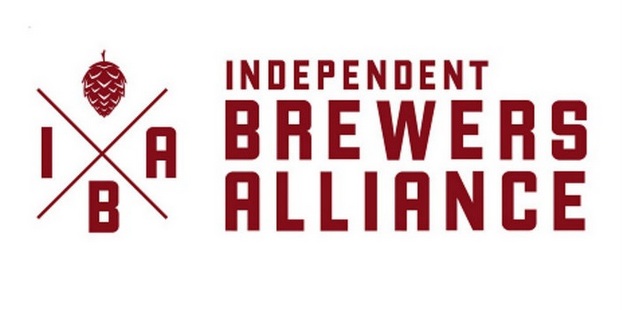
The story of humanity is the story of striving for independence. In the craft beer industry, independence is both identity and practice, and, really, it’s the only reason a “craft beer industry” exists. Craft brewers burrowed, organically, out from under the thumb of Big Beer. It took decades, but that passion found success, which created a new market and an entire actual industry.
Small and independent, unfortunately, can only remain a strategy for so long (if you kick ass at it, at least), and now many brewers believe the craft beer consolidation era is upon us. Beer Voltron is buying up craft brewers, other international corporations and private investors are buying others, some craft breweries are teaming up to form their own strategic alliances or even selling to other craft breweries. All of it is in the name of increased market share and economies of scale — and all of it affects all other craft breweries.
Consider pricing. The breweries striking deals now will have much better buying power and command different pricing for ingredients and supplies. Those who remain independent and on their own will then see their prices go up and/or their access drop. All of that leads to the shelf where the brewer without the buying advantages will have to charge more for its product because it costs so much more to produce. This will no doubt either make it harder for craft brewers to compete or harder to make money while selling their beer.
But shit, guys and gals, isn’t there a middle ground in this madness? Does all of that hard work building an independent industry have to be sold away in the zero sum game of “growth?”
I wouldn’t have asked if there wasn’t a potentially great answer.
Meeting of the minds
This CBB editor had the chance during the Craft Brewers Conference in Philadelphia (anyone know of any other strong independent movements that started in Philadelphia?) to sit in on the initial meetings of the Independent Brewers Alliance — maybe the first honest-to-god craft brewery purchasing co-op. We walked into those meetings thinking that it was a neat idea if it could happen, and we left those meetings believing that it needs to happen.
This was a small hotel meeting room filled with successful, smart, passionate business people who have played a big role in growing today’s craft beer boom, and yet they had very real concerns about their brewery’s plan of action going forward. These concerns are both based on current problems and future concerns. Examples:
Some of the brewers commiserated about literally being told by their can supplier that they can no longer purchase cans from them. No discussion about what a new minimum order might be — didn’t matter. They were just going to focus on their larger accounts. Have a nice day.
Hops sourcing is already fairly competitive and requires contract commitments (that sometimes, according to a few brewers in the room, are not totally guaranteed), and if another poor harvest or two is on the way, the ramifications could be devastating. But it’s not just hops. Several brewers are already worrying about this same competitive environment (and potential scarcity) with malt too.
Enter the co-op
Who exactly is behind this Independent Brewers Alliance? Well, I’m giving you the long version of the story because who they are is important (but if you hate reading you can skip this paragraph). The whole thing came about kind of at random. Jeremy Cross, Scott Houghton and Greg Hill, co-founders of Mass.-based Battle Road Brewing Co., were chatting with long-time friend Charlie Alpert about some of the challenges the brewers were seeing, especially access to materials, affordable contract brewing time and cost of materials. Alpert asked if anyone had tried to organize a purchasing co-op because he had seen similar industry challenges conquered with dramatic success in the carpet industry by a cooperative group called Carpet One. Charlie’s company was actually a vendor to Carpet One, which is the nation’s largest purchasing group of floor covering stores (1,200+ members) and recommended the Battle Road guys talk to Howard Brodsky, the Carpet One co-founder. Brodsky is literally in the Co-op Hall of Fame (a real thing, whose ranks include freaking Ben Franklin for founding the nation’s first co-op, a member-owned insurance company) and Brodsky has helped organize co-ops in all kinds of industries. In total, Brodsky’s group helps more than 3,000 independent business owners across four different industries, and in floor covering alone, their group is the No. 3 purchaser in the country behind Lowe’s and Home Depot.
That fact made my ears perk up a bit more. Brodsky recommended that the Battle Road guys work with his son Greg, who had also dedicated himself to forming co-ops, having formed a formidable co-op in the bicycle industry.
So, why is that long background story important? Because leveraging that type of experience is the only way this project will get off the ground. It’s not like craft brewers — maybe the most collaborative and friendly business owners on the planet — hadn’t thought of doing something like this before. A co-op has been discussed for years, but it is 2016, and one still doesn’t exist because this isn’t easy. There are a lot of questions to ask, goals to set and tasks to accomplish. Running and growing a brewery is hard enough, and forming and running a co-op is basically an entirely separate business.
Exploring these issues was the main focus of the meetings. Brodsky and his team wanted to hear what craft breweries wanted to get out of a co-op because members of a co-op ultimately decide the priorities of the co-op. Broadly, those benefits include:
1. Leveraging buying power. This could come in the form of lower costs, access guarantees or lower order minimums, for example.
2. Growing business. This is stuff like distribution support, expanded capacity, etc.
3. Maximizing operations. You focus on brewing, while the co-op helps you get better back office rates on warehouse supplies, freight costs, credit card rates, etc.
To narrow the focus, Brodsky and crew compiled a list of the common services and products that brewers in the meetings wanted a prospective co-op to address:
- Legal aid
- HR support
- Quality assurance and testing
- Discounts on energy
- Discounts on credit card rates
- Discounts on malts, hops, cans, bottles, kegs
- Website design
- Social media and blog support
- Marketing materials
- Brewing capacity
- Discounted access to expert outside capacity
- Getting taps
- Getting shelf space (the most votes)
Now, that is just a wish list. There is no telling which of those would be a focus of a co-op. All of that is in the future, but if a co-op formed right this second, Brodsky says they already have deals lined up just based on prior relationships from other groups on back office services ranging from payroll processing to job postings to office supplies.
How you can get involved
I can only assume that every person reading this is intrigued and ready to join, which is great, but also likely not possible.
The Independent Brewers Alliance definitely needs size — the goal is to represent 1 million bbls of buying power within the first 24 months (which would require some sizable regional players), with hopefully 300 to 400 members as the goal, preferably in that 5,000 to 50,000 bbls range.
But a strong purchasing group needs quality as much as quantity. Vendors will want to know what the Independent Brewers Alliance stands for. The value of the co-op, from the vendors perspective, isn’t just in negotiating a discounting for volume, but in being a preferred vendor to a substantial group of outstanding, trustworthy companies.
Charlie Alpert drove this point home at the CBC meeting, saying that in his experience, his company works harder when dealing with the Carpet One co-op’s customers because, as a group, they are such great customers. And if a vendor slacks with any member in that relationship, suddenly they put a ton of their business at risk.
Now let’s assume you are qualified. Congrats, here is how it works: The Brewers Alliance would be a corporation that’s owned by its members, existing for the sole purpose of negotiating programs that save brewers time or money. All members would own one share, have one vote and pay a membership fee that would go to funding expenses for a small staff to work on the deals and relationships. The staff would be responsible to a member-elected board of directors.
Nothing at all changes for each brewery in terms of its ordering. It is of course possible to split an order of, say, cans, but there is no need to do this. The terms of the contracts would be decided ahead of time and members just order as they always have, at their own pace. Everything is billed separately.
If one of the co-op’s members goes out of business, it may not be a great look for the collective, but it also doesn’t affect the alliance.
There is no telling what the future holds for this group. It may become a hugely influential buyer. It may never actually get off the ground. CBB, for one, definitely hopes it works. Never forget there are now more than 4,200 breweries in the United States with another 1,000+ in planning — with the majority of that number being small and independent businesses. And never forget that the real bones of this industry are those small and independent businesses.
If you are interested in learning more, be sure to hit the fledgling group’s website www.brewersalliance.org. They are hosting introductory webinars (May 24 at 3:30 ET and May 26 at 4:30 ET) that will provide more in-depth valuable info for those interested.


Hong Jinho liked this on Facebook.
Serge Lubomudrov liked this on Facebook.
Belgian-Style Ales liked this on Facebook.
as long as there are beer nerds and home brewers that know what beer really is, craft will never die.
RT @CraftBrewingBiz: One-million-bbl buying power: Can a co-op save craft beer independence from consolidation?https://t.co/2lvsiMpsMi
RT @CraftBrewingBiz: One-million-bbl buying power: Can a co-op save craft beer independence from consolidation?https://t.co/2lvsiMpsMi
RT @CraftBrewingBiz: One-million-bbl buying power: Can a co-op save craft beer independence from consolidation?https://t.co/2lvsiMpsMi
FormPak Inc. liked this on Facebook.